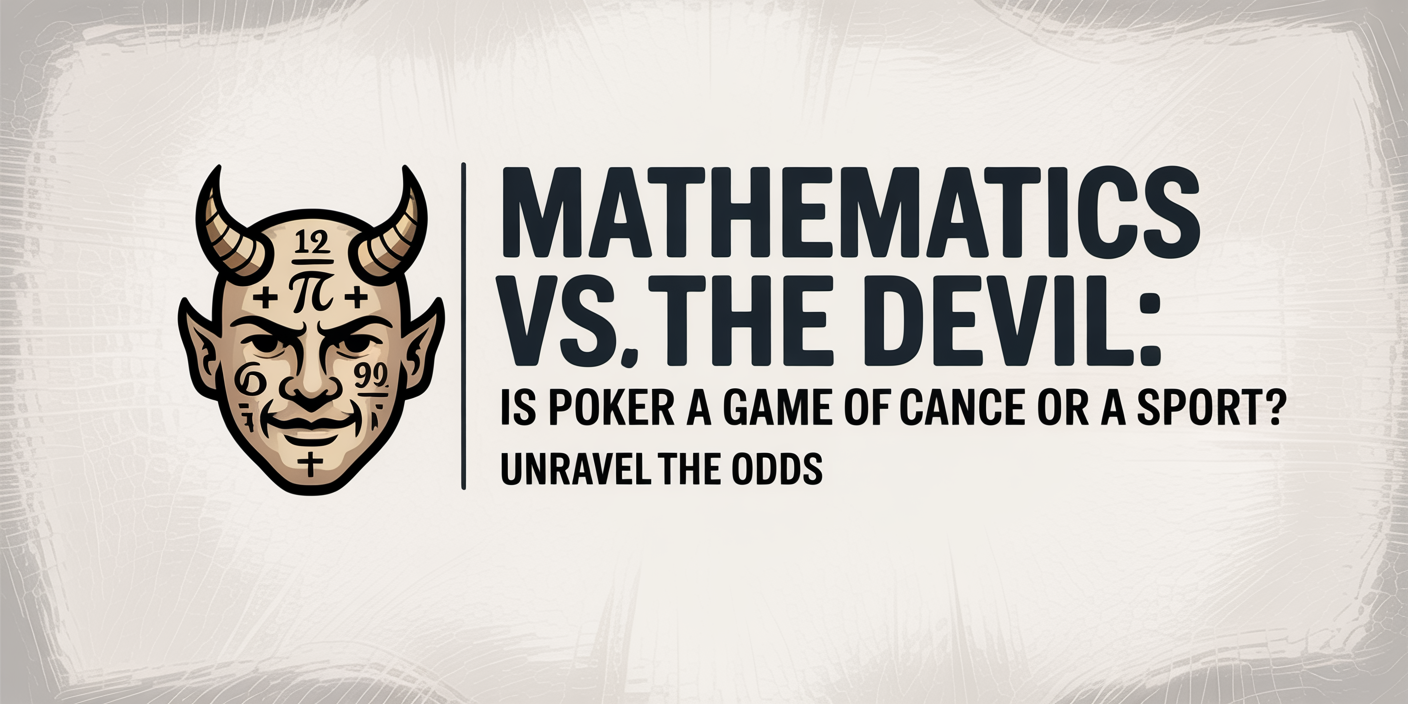Mathematics vs. the Devil: Is Poker a Game of Chance or a Sport?

Let us talk about why poker is both a game of chance and a competitive sport, and what really distinguishes these definitions.
Poker is usually a game of chance and is one of the most recognizable features in casinos. Thanks to mobile gaming, it's now easier than ever to access—particularly with video poker apps Android, which enable gamers to practice and play the game anywhere, anytime.
In the meantime, in professional communities, there have been competitions that have been embraced as competitive poker games for some time now, and the game is even officially recognized as a sport in many jurisdictions.
What then, is the difference between "gambling" poker and "sporting" poker? How do you explain to your relatives and friends that you want to finish poker school and be a world champion—not lose everything at a casino?
And finally, can someone become addicted to competitive poker? Can professional players exploit the system?
What Is Poker, Really?
To determine whether poker is a game of chance, we first need to define what we mean by “gambling.”
Gambling, according to the Encyclopædia Britannica, is "the wagering of something of value upon an event with an uncertain outcome with the primary intent of winning additional value." Such events can be decided solely by chance or include ones in which outcomes also depend on errors in judgment by players.
Under such a broad definition, most activities that involve financial risk and a possibility of profit—in such as investing, stock trading, or entrepreneurship—would also qualify.
Let us not overlook the fact, however, that gambling is a form of entertainment and not a way of making money. The moment the urge to make money overtakes the urge to simply enjoy playing the game, gambling addiction takes over.
Poker, in its most pure form, where the participants are well aware that they are placing bets and that the probabilities are often against them, is a relatively "safe" and structured form of gambling.
What About "Sporting" Poker?
"Many games of chance involve elements of skill or strategy," reports Britannica. "Poker, like most card games, is a combination of chance and strategy that also requires a keen knowledge of psychology.
The approximate dividing line between poker as a game of chance and poker as a sport is whether random chance is overshadowed by player skill.
Lotteries, slot machines, and roulette are what are usually regarded for legal and gambling purposes as pure chance games—outcomes are determined randomly.
But poker differs in a significant way. Judges and gaming commissions in several jurisdictions have ruled that skill predomates in poker. That separates it from traditional gambling and redefines it, in some contexts, as a game of skill rather than chance.
Another key concept here is game flexibility—that is, what the players can do during the course of a game to improve their prospects for winning.
In roulette, for example, once a bet has been placed, the outcome is entirely in the hands of fate. Poker, on the other hand, with numerous decision points throughout the game—such as betting patterns, reading opponents, and bluffing—makes it possible for skilled players to obtain a vast edge.
Can Professional Poker Players Play in Casinos?
In the eyes of the law, poker professionals are not typically excluded from playing in casinos.
There have been many instances when leading poker players have walked away from casino tables with winnings that were astronomical. However, some of them have also been found to manipulate the rules or use banned strategies.
High-stakes poker games—games with extremely high bets—are the domain of professional players. They are occasionally joined by wealthy amateurs who play poker more as a hobby rather than as a profession.
Curiously, pros are not usually drawn to low-stakes games simply because the stakes are low, but because the strategic complexity of these games is usually low. Amateurs will more likely rely on being dealt lucky cards or on straightforward bluffing, and the game becomes less stimulating from a competitive point of view.
"I never played poker just to make money. If your only reason for playing is to make a profit, you'll never really succeed," says one pro poker player. "Poker is a game you have to love. Only then will things start to fall into place—and the money will follow."
